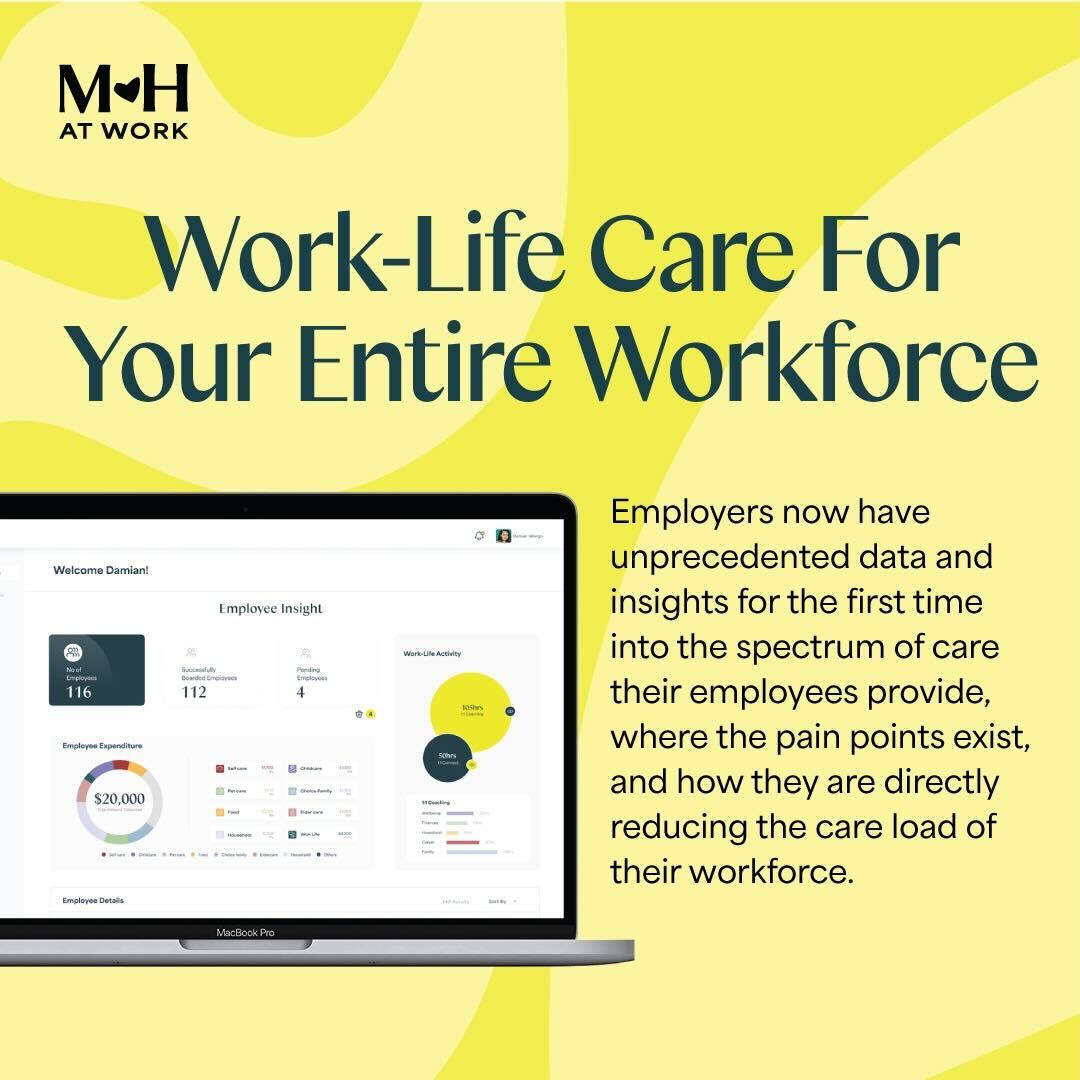How to Work When Your Child Is in Crisis
It's tough to find time and energy when you’re consumed by worry. This MD wants to help.
Parenting can be hard. Working can be stressful. Combining the two can feel overwhelming at times—especially when you’re consumed by worry for your child.
As a working parent who has written about working parents for nearly eight years, I thought I understood the challenges that come with the territory. But it’s hard to confront a crisis you’ve never anticipated, and parenting is full of unforeseen dilemmas, from ADHD to asthma, food allergies, feeding issues, learning disabilities, anxiety and depression, developmental delays… you name it.
I learned this the hard way, after my son took two harrowing trips to the emergency room and was eventually diagnosed with asthma. Now, two years later, his condition is well controlled, but for months we met with specialists, tracked down and adjusted his medications, allergy-proofed our home, and even transferred him to a new school. I spent hours researching his care, gleaning most of my information from moms on Facebook, even though we live in a neighborhood that’s infamous for high asthma rates.
My son on our first visit to the ER
“For parents raising children with these additional needs, there seems to be, oddly, fewer resources,” writes Dr. Kelly Fradin, MD, in her forthcoming book, Advanced Parenting: Advice for Helping Kids Through Diagnoses, Differences, and Mental Health Challenges. “While parents are drowning in parenting content and consuming it at an all-time high, most parenting advice is geared toward average children facing typical challenges, from getting a baby to sleep to helping a teen with their nascent independence.”
Kelly wrote Advanced Parenting to help caregivers navigate the daunting and distressing diagnoses that take time, energy, fortitude and persistence. It’s especially necessary information now, in a country where one-third of children will experience a chronic medical condition, more kids are struggling with their mental health, and shortages are making it increasingly difficult to find care and medication.
Employers aren’t prepared to help parents manage these challenges, either. While more companies now offer paid parental leave for employees who welcome a new child, most don’t offer paid family leave, which gives employees paid time off to care for a family member in need. On average, full-time employees receive eight paid sick days per year, an amount that is incredibly easy to burn through when your child has a chronic condition or complex need. And while the pandemic certainly ushered in a new era of workplace flexibility for many employees, it’s a benefit that’s far less common among hourly and low-wage workers.
It’s forcing caregivers out of the workforce. Several recent surveys show that a majority of parents have missed work to take care of their kids this year. One new report by Vivvi found that parents are actually more likely to take a career pause when their children are toddlers and preschoolers (37%) than when they are infants (34%).
If employers want to retain their talented employees, they must find ways to accommodate employees when they confront a personal crisis, with children or otherwise. In the meantime, we talked with Kelly to find out how working parents can manage these stressful situations, while staying true to their own career ambitions and aspirations. We love her wise advice, below.
HOW TO KEEP YOUR CAREER ON TRACK WHEN YOUR CHILD IS STRUGGLING
HAVE A PLAN FOR TACKLING THE WORK
Make a list of all the tasks associated with managing your child’s care: making appointments, handling insurance, researching the condition and available resources, communicating with the school and care team, and monitoring the condition, for example. Then, make a plan for how you’re going to handle each task, according to the skill set and availability of each parent (in a two-parent household). Be sure to revisit the plan if it feels untenable for one parent. It's very important for promoting healthy marriages, preventing resentment and making sure both partners have visibility into the work that's happening.
DON’T NEGLECT YOUR OWN NEEDS
Parents who are facing additional caregiving responsibilities don't have a lot of time or energy for extra tasks, but therapy, exercise and sleep will help parents feel better and function better. Sometimes we have to choose our own wellbeing over an additional service for our child, and that's OK. I really encourage parents to continue to prioritize their own needs because most challenges children face last longer than a day or two. For parents to continue to function well, make the best decisions and provide the best care for their children, they have to be in a good space. Don’t feel guilty for protecting your ability to work or sleep or care for your other children. Put it in a positive context: “I'm going to be a role model for my family and intentionally model taking care of myself, so that I'll be able to take care of the rest of the family. In the long-term, this decision is going to be beneficial to my child.”
ASK FOR WHAT YOU NEED AT WORK
Think about it from the perspective of your employer and try to anticipate what they will care about most, then ask for specific accommodations that will allow you to mitigate whatever concerns they may have. For example: “I will need this adjustment to my hours,” or, “I need flexibility around the time of this surgery.” You may need to remind them again. When parents share a child’s diagnosis with their employer, they assume it will always be top of mind for their employer, because it’s always top of mind for them. But sometimes employers forget that an employee asked for a specific kind of support. Try not to take it personally and continue to ask for what you need.
GIVE YOURSELF GRACE
We're often a lot harder on ourselves than we would be to other people going through the same circumstances. I encourage parents to speak to themselves like they would speak to a friend. You can’t “out parent” a diagnosis. You can't “parent through” your child having a developmental delay or disability or mental health challenge. Sometimes parenting techniques can be part of the plan to fix things, but that doesn't mean that parenting could have prevented your child from having this additional need. When our child has a diagnosis, we'd like to have someone to blame, but it’s often up to chance, genetics or just the way our children grow. One thing that can help is sharing your emotions with your care team, i.e. “I really feel like this is my fault.” It gives you an opportunity to hear from experts in your child's condition that know it's not true, and saying it out loud often takes away the power of that feeling.
LEAN ON YOUR TEAM
There's often guilt associated with not being able to do it all ourselves and a belief that no one can do as good a job as we can do as parents. But having a bigger team of people supporting your child is a gift. Lean on your support system, whether it's babysitters, teachers, neighbors or grandparents. That’s just a smart use of resources.
DON’T AGONIZE OVER DECISIONS
Making decisions regarding our child’s care takes energy. We do the research, balance the pros and cons, and solicit opinions from experts. But one strategy we underestimate is understanding that many decisions are temporary. Instead of debating a decision every day for three months, pick a strategy and reevaluate it in a month. It also frees up some time and mental space to reassess your child's status. One of the reasons these decisions are so hard is because both options are often valid, right? Remembering that can also make it feel less scary to choose between them.
JOIN US:
Join us on April 20th for our WorkWell LiveWell Summit, presented by Indeed. The event will bring CEOs, CHROs, wellbeing champions, parents, caregivers, and employees together to share workplace solutions that support productivity, performance and wellbeing for all. Register here: https://hopin.com/events/work-well-summit/registration
GET THE WORK-LIFE WALLET:
Stop wasting money. Redirect cash from ineffective EAP programs and directly empower your employees to meet their unique work-life needs. With Mother Honestly’s NEW work-life wallet, employees can access support for an array of work-life needs, including child care, elder care, pet care, self care, household chores and more. Employees link their debit card or bank account, and we screen and qualify work-life related expenses for reimbursement within seconds. Learn how your company can support caregivers with our Work-Life Wallet.
HATE TO SEE IT
Companies’ DE&I efforts are falling short, according to an analysis by Fortune. Although 71% of companies implemented DE&I efforts since 2020, only 33% of workers say that their company has fair practices in place.
LOVE TO SEE IT
Vice President Kamala Harris announced a new nearly-$1 billion initiative to help eliminate gender inequality in Africa. Thanks to a mixture of US government funding and private sector commitments from companies that include Visa, MasterCard, Procter & Gamble, Microsoft, and Pfizer, the program will generate $528 million to support economic well-being and $400 million dedicated to getting more women in the digital economy, Bloomberg reports.
Half of the new businesses opened in the U.S. in 2022 were founded by women, for the third year in a row, up from 29% in 2019. Those women entrepreneurs will have more assistance going forward: The Biden Administration announced it is opening 15 more Women’s Business Centers, aimed at supporting and educating women business owners. Now there will be one in every state and Puerto Rico.






